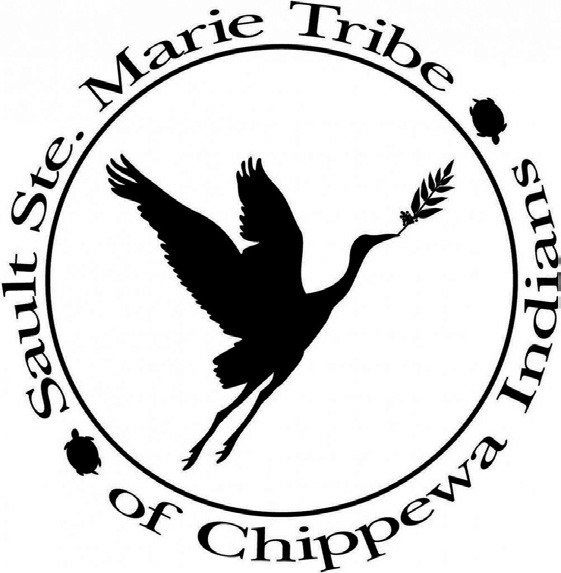The Sault Ste. Marie Tribe of Chippewa Indians continues to expand services for its members despite recent challenges, including a ransomware attack that has affected multiple phone and computer systems across tribal administration, health centers and businesses such as the Kewadin Casinos.
Tribal Chairman Austin Lowes assures the community that cybersecurity experts are working to restore operations, with updates provided regularly on the tribe’s Facebook page.
While some services remain limited, new phone numbers have been established to maintain communication.
The Sault Tribe Pharmacy refill lines are still being repaired and are currently unavailable to pharmacy staff. Members should not leave refill requests on these lines but instead bring prescription bottles to designated locations or call updated numbers for assistance: Sault Pharmacy, 906-440-8165; St. Ignace Pharmacy 906-3797384; and Manistique Pharmacy, 906-440-6746.
Even before the recent attack, the tribe has been working to expand services to improve the well-being of its members. Programs focus on health care, education, housing, cultural preservation and family services.
The tribe’s departments address a variety of member needs: Anishinabek Community & Family Services include core advocacy, transportation assistance, safety planning, personal protection order help, court accompaniment, financial aid, legal assistance for victims, crime victim compensation, supportive housing, client computer kiosks, educational resources and missing or murdered advocacy. Traditional Medicine Survivor Care Kits are available for survivors outside the tribe’s seven-county service area.
Education programs include early childhood programs, Youth Education & Activities, Workforce Investment Act, Sault Tribe Internship Program, adult education, higher education funding, JKL Bahweting School and the Youth Development Fund.
Elder services include meal programs, in-home services, transportation, outreach, health funds and elder committees.
Health services are acupuncture, audiology, behavioral health, dental care, diabetes and nutrition programs, fitness centers, general medicine, health education, immunizations, medical case management, nutrition services, optical care, pharmacy, physical therapy, radiology, smoking cessation, traditional medicine and ultrasound services. These are offered through four full-service health centers and four satellite locations.
Enrollment services include management of the tribe’s membership database and assistance for members.
Environmental services include education on healthy homes, energy efficiency and environmental protection. Services include home air assessments and well water testing for uranium contamination within the service area along with guidance on Michigan environmental regulations.
Conservation law enforcement includes support with Great Lakes subsistence/gill net licenses, commercial fishing licenses and inland hunting and fishing licenses.
Housing programs involve rental assistance, home ownership initiatives, home improvement support and savings programs.
Cultural and language resources include promotion of Anishinaabemowin (Ojibwe language), cultural camps and repatriation efforts to reclaim sacred items and traditions.
Despite robust offerings, barriers remain. Transportation issues, outdated income guidelines and limited resources for members outside the service area are common challenges. “Many members fall through the cracks due to these restrictions,” said Mary Jenerou, the tribe’s membership liaison.
To overcome these obstacles, the tribe connects members to services or refers them to external agencies. “If the tribe cannot assist, I’ll find other organizations that can,” Jenerou said.
Since gaining federal recognition in 1974, the tribe has significantly expanded its resources. “The health services we provide, along with cultural and social community buildings, show how much we’ve empowered our people and communities,” she said.
Departments adjust and expand programs based on member feedback. New services are shared through outreach efforts once approved.
Reflecting on the tribe’s progress, Jenerou expressed gratitude for its early leaders: “Without their vision, we wouldn’t have the resources we do today. We strive to provide a healthy, culturally balanced life for our members.”
Tribal services directory For anyone needing services,
here is a directory of tribal support services available: Anishinabek Community & Family Services: Sault Ste. Marie, 906-632-5250; Manistique, 906-341-6993; Munising, 906387-3906. Education: 906-632-6798 Elder services: 906-635-4971 Enrollment services: 906632-8552 or 906-635-3396 Environmental department: 906-632-5575
Conservation law enforcement: 906-635-6065 or 906-632– 6132
Health services: Escanaba, 906-341-1836; Munising, 906387-4721; Hessel, 906-484-2727; Manistique, 906-341-8469; Marquette, 906-225-1616; Newberry, 906-293-8181; Sault Ste. Marie, 906-632-5200; St. Ignace, 906643-8689 Housing services: Kinross, 906-495-1450; Manistique, 906341-5145 Language and culture: 906635-6050
“
The health services we provide, along with cultural and social community buildings, show how much we’ve empowered our people and communities.
—Mary
Jenerou
”
